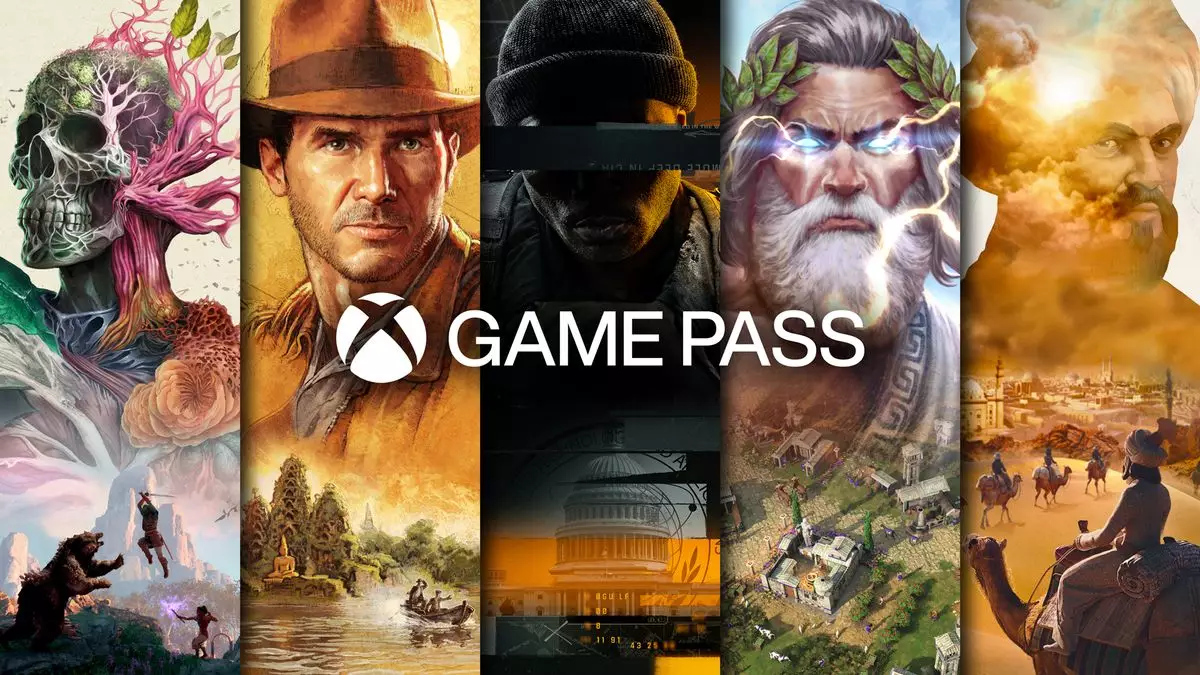For years, the rivalry between gaming giants like Xbox and PlayStation has defined the industry. The battle lines were drawn, with both camps fiercely focused on not just promoting their consoles, but also attempting to draw players away from competing platforms. However, recent statements from Phil Spencer, CEO of Microsoft Gaming, indicate a major paradigm shift in this approach. Rather than trying to convert players of rival systems, Spencer openly acknowledges a new strategy: promoting the accessibility of games across different platforms.
This shift marks a significant departure from Microsoft’s previous mentality concerning exclusivity and competition. Historically, gaming companies often relied heavily on a fortress mentality, insisting that players must choose a side in the console wars. But as Spencer has articulated, it’s clear that the gaming landscape is evolving, and so must the strategies of the companies that inhabit it.
One of the driving forces behind this new multi-platform ethos is the financial model associated with game sales. In a candid discussion, Spencer noted that while selling games on other platforms nets Microsoft only 70% of the revenue, compared to 100% when sales occur on Xbox, the overall mission transcends mere profit. Spencer emphasized, “I’m not trying to move them all over to Xbox anymore,” signaling a desire to find new audiences for Microsoft’s franchises rather than trying to reclaim exclusive dominance.
In doing so, Microsoft acknowledges a fundamental truth of the modern gaming world: players are invested in ecosystems, communities, and experiences rather than solely the hardware used to play games. It is an admission that the traditional growth tactics that focused on conversion may be outdated. This inclusive approach could open lucrative doors, as more players get the chance to engage with critically acclaimed titles regardless of their preferred platform.
This progressive mentality extends to how Microsoft showcases its products as well. In an effort to promote transparency and authenticity, Spencer stated that future presentations would incorporate the presence of PlayStation and Nintendo Switch logos alongside Xbox branding. This is more than a mere public relations tactic; it reinforces a commitment to acknowledging the diverse platforms on which their games can be enjoyed. By doing so, Microsoft demonstrates that their drive is rooted in goodwill towards gamers rather than competition with rival brands.
Furthermore, Spencer’s candid approach may set a precedent for the entire industry. If developers see the benefits of cross-pollination, it could launch a wave of high-quality titles available across multiple systems, enhancing the gaming experience for everyone involved.
Despite this marked shift toward multi-platform accessibility, Spencer has also reaffirmed Microsoft’s commitment to its own hardware. This dual focus is key; while they continue to push for a more inclusive gaming ecosystem, Microsoft has not forsaken its investment in the Xbox console. Instead, Spencer acknowledges the importance of maintaining a robust gaming platform that attracts users for its strong library of exclusive titles.
Speculation about future iterations of Xbox hardware, including possibilities for handheld devices, continues to circulate. This ongoing innovation could help maintain Microsoft’s relevance in a rapidly changing industry while ensuring that their proprietary environments can thrive alongside cross-platform availability.
The gaming landscape has turned a new leaf under the leadership of Phil Spencer, as Microsoft embraces a future where collaboration and accessibility reign supreme over competition. By opening the doors of their gaming experiences to players wherever they may be, Microsoft not only stands to expand its audience but also champions the core idea that games should be enjoyed rather than hoarded. This progressive, inclusive approach could change the nature of gaming as we know it—bolstering community connections and enriching the overall experience for gamers across all platforms.
This newfound focus on accessibility may well define the next chapter in gaming history, signaling a potential paradigm shift away from isolation and turf wars toward a more inclusive, collaborative market.


Leave a Reply